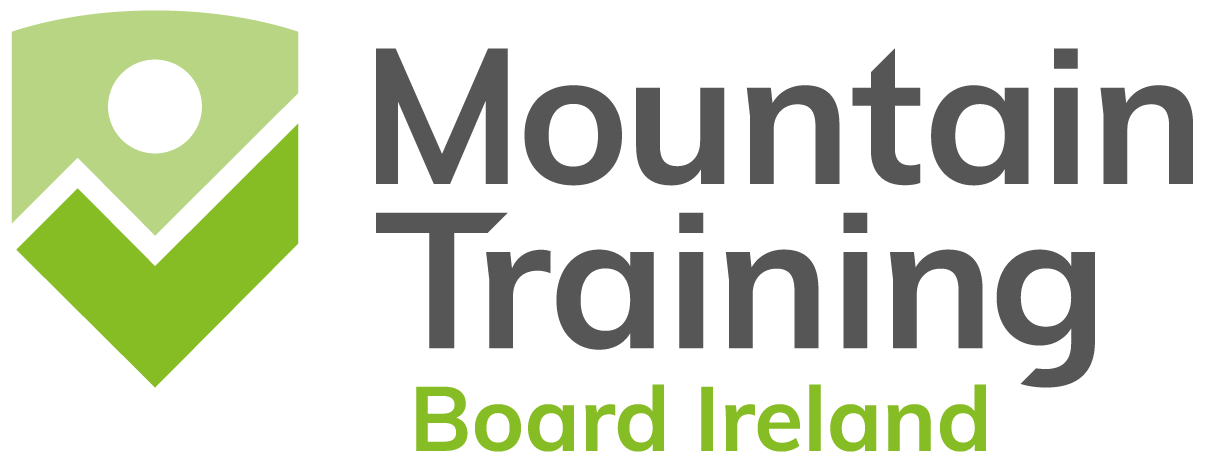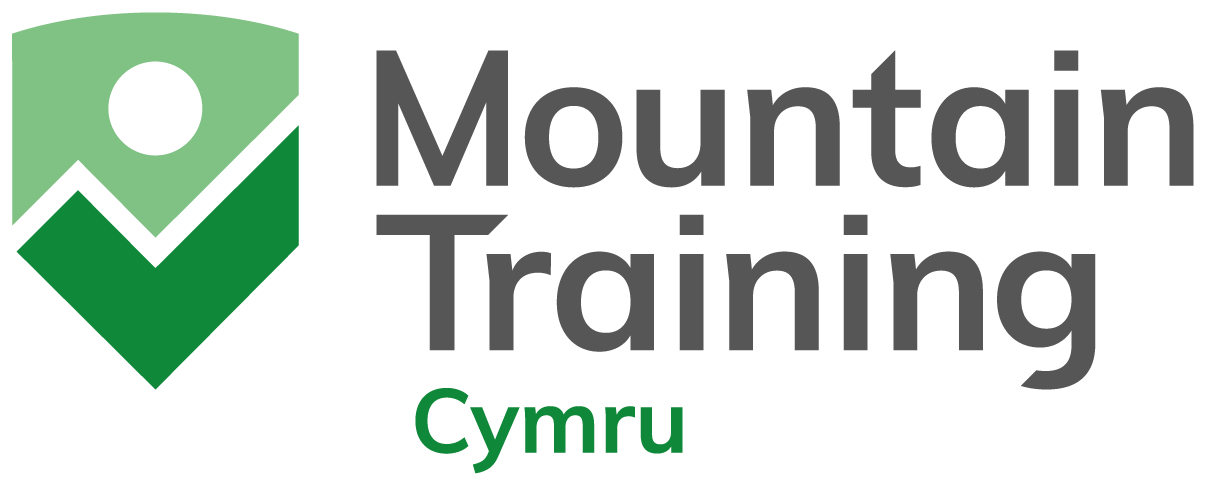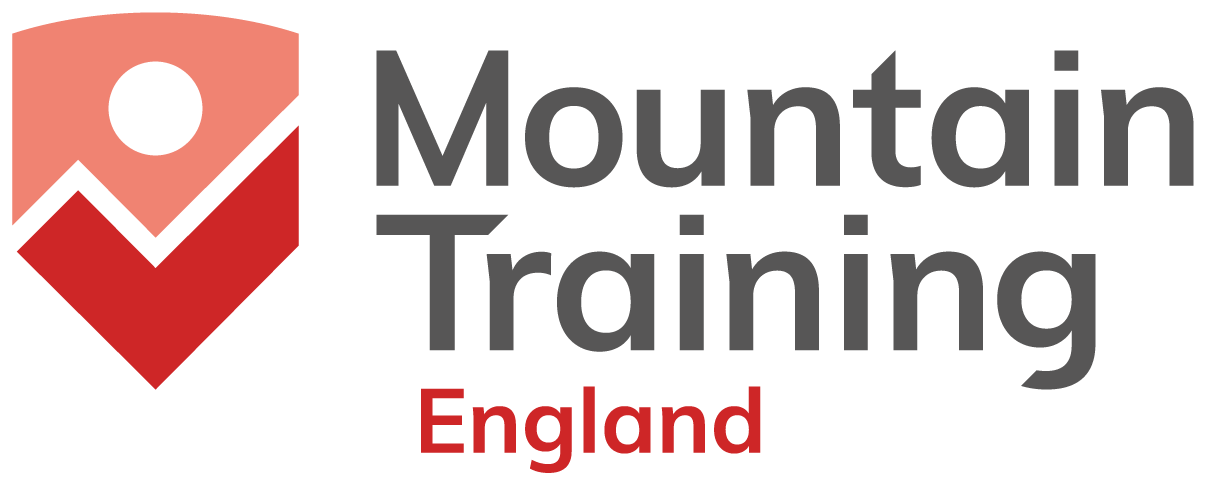Winter Mountain Leader course activity Season 2024-2025 Overview
02.05.25Report: 02 May 2025
We have successfully completed another and arguably one of the most uncertain and frustrating seasons we have had to date.
On behalf of Mountain Training Scotland and Mountain Training I would like to thank the 117 candidates who committed to undertaking a Winter Mountain Leader course this season.
We would also like to congratulate all those who passed their assessment, and wish those who have completed their training and considering going onto assessment every success when they come to be assessed.
Winter weather and conditions
It was another very challenging winter weather and conditions wise. Whilst the general theme we have experienced in previous seasons, of both weather and conditions being very dynamic and increasingly unpredictable. Snow cover unlike last year, with some notable exceptions early in January, was extremely poor with conspicuous lack of depth. The mega thaw that occurred in January pretty much deleted the snow cover in the Highlands. If it was not for the ‘dump’ of snow during Storm Eowyn (post the January mega thaw) then the season would have ended far earlier than it did. As it was the snow that fell then, plus several occasions thereafter enabled the season to limp along till mid-March. Ironically conditions did start to improve later in March but it was too little too late for course activity, before a very mild spring finally called time.
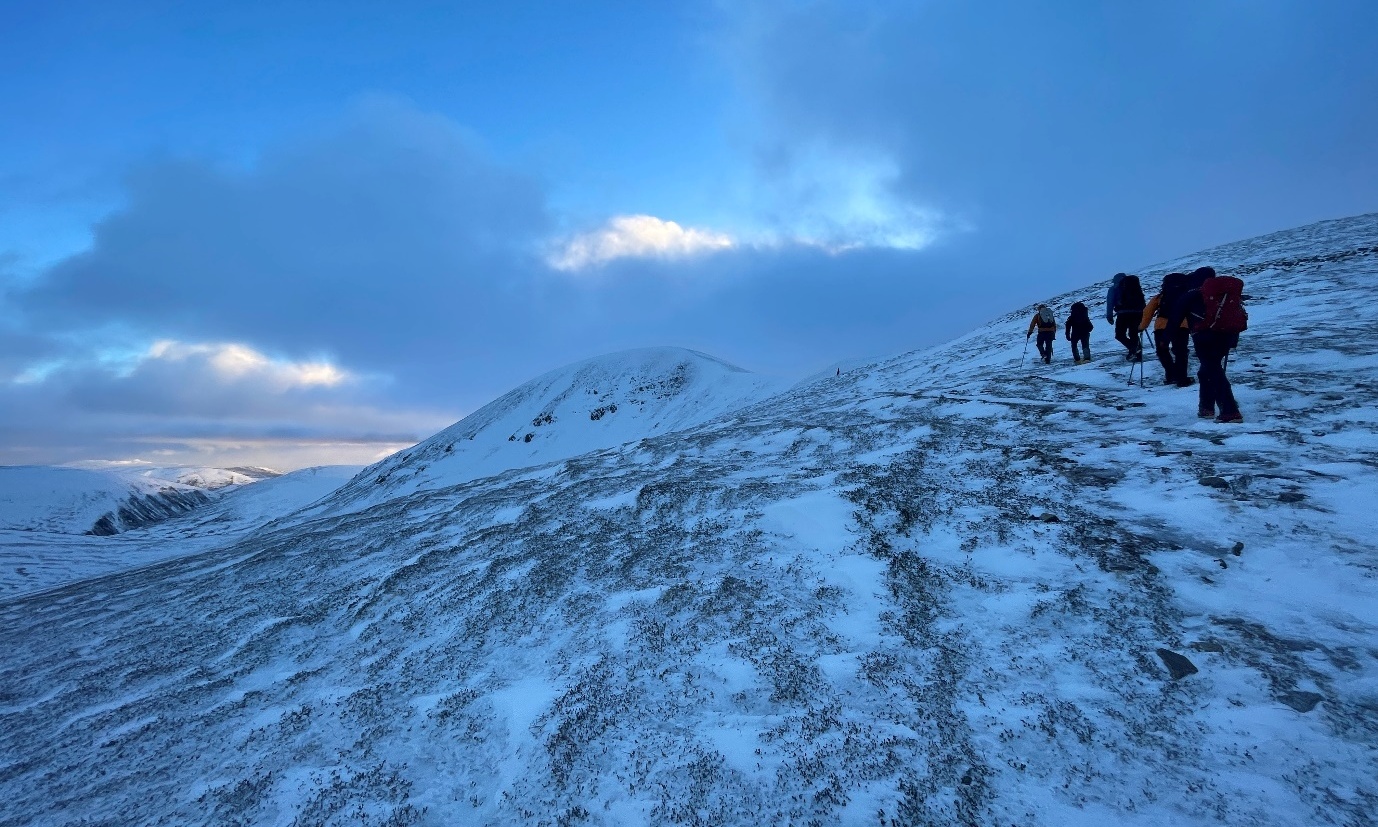
Winter Mountain Leader Course Activity
Mountain Training Scotland providers ran a total of 15 (9 down on last year) courses - 10 training courses and 5 assessments – whilst 5 re-assessments were also run. Unfortunately due to conditions our providers ended up cancelling 3 training and 7 assessments.
A total of 82 (down on 102 last year) candidates completed training and 30 (down on 74 last year) assessment. Of the 30 completing assessment 28 passed (A pass rate of 88% - up on the 82% last year), 2 were deferred (compared to 14 last year) and none failed.
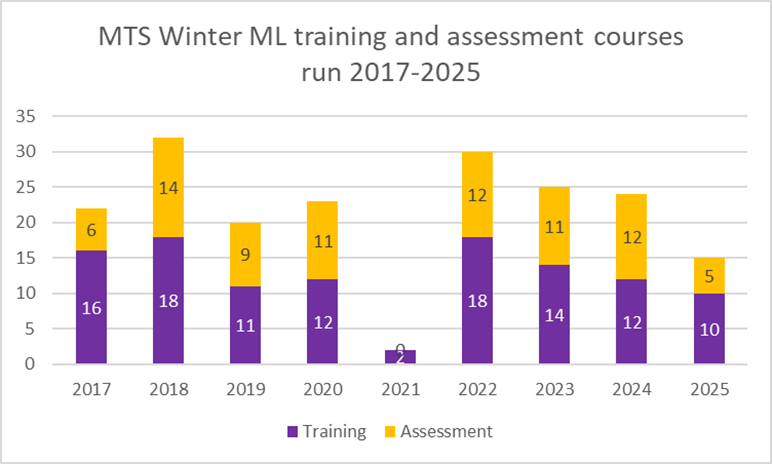
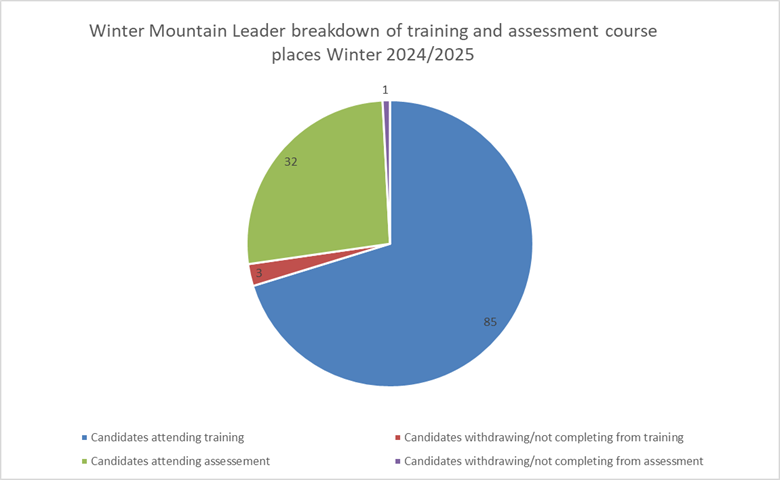
Winter Mountain Leader Snow Shelter activity
Of the 15 courses that ran, not one course managed an overnight in a snowhole.
This is the first year in the history of the Winter Mountain Leader scheme since its inception in 1965 that no course has managed an overnight in a snowhole.
The very limited and very shallow snowpack (either bullet hard, or thawing) and mild conditions (weather system timings continue to be very unreliable) were the most common cited reasons for groups not overnighting in a snowhole.
Various alternative strategies including using emergency shelters to have a break and a meal, then navigate of the hill in darkness, plus camping, bothies and bivvies were all successfully used.
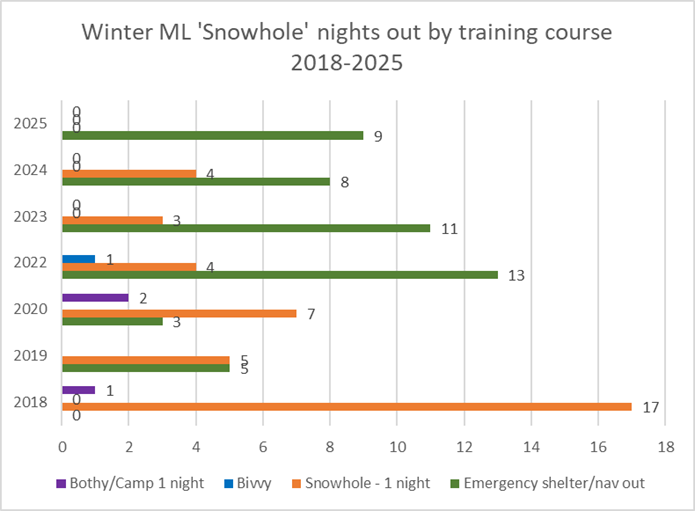
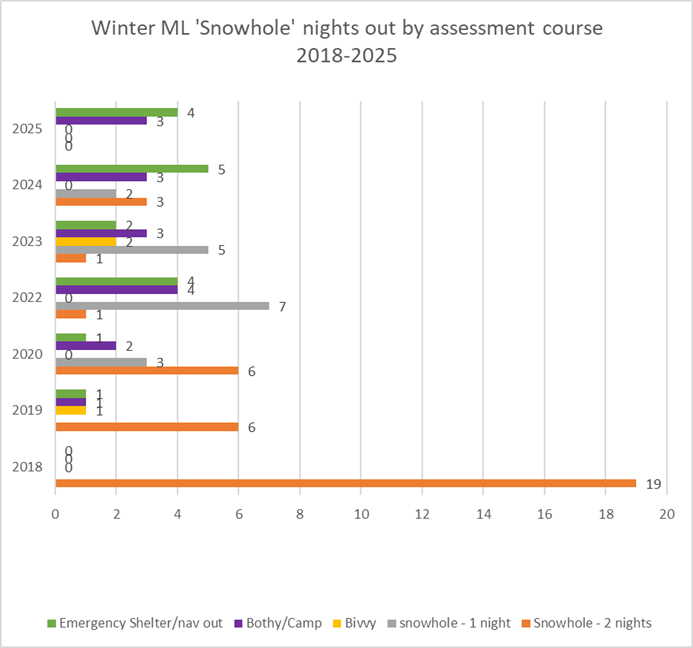
Winter Mountain Leader Course Activity by Gender
A total of 82 candidates completed Winter Mountain Leader training, with 26 (32%) identifying as female. At assessment, 29 candidates completed the process, of whom 7 (24%) were female.
This marks a positive shift compared to 2017, when only 19% of those completing training and 7% of those passing the assessment were female.
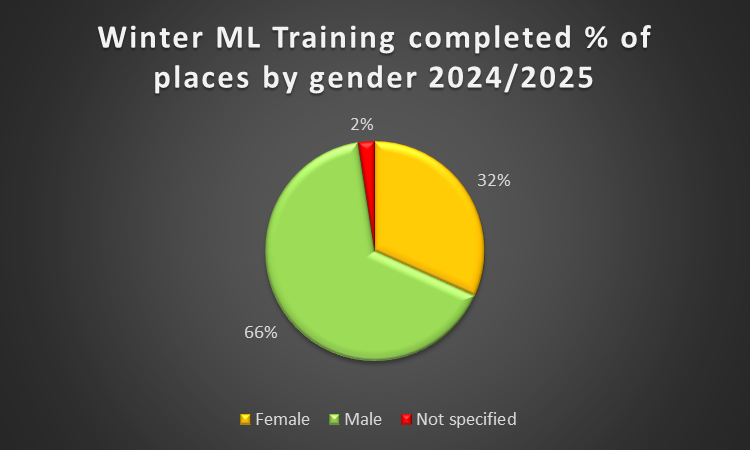
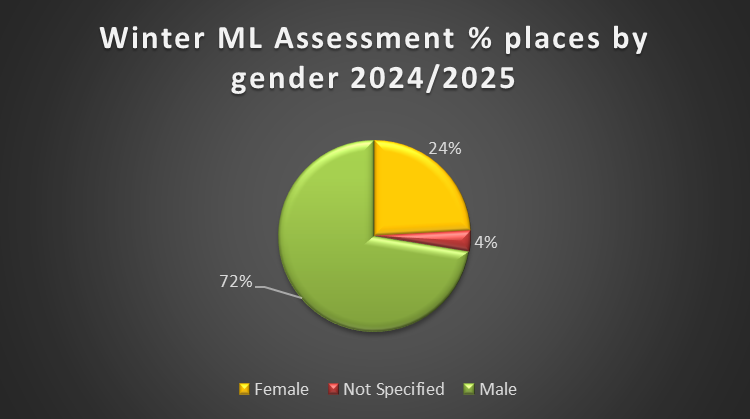
Winter Mountain Leader Reasonable Adjustments
Since 2013, Mountain Training Scotland (MTS) has recorded evidence of Winter Mountain Leader Course Directors making ‘reasonable adjustments’ for candidates with disclosed conditions or protected characteristics. These adjustments often involve ensuring course staff are aware of the candidate’s needs—frequently, this awareness alone suffices. A collaborative approach, where candidates describe their condition, how they manage it, and how staff can support them, has proven effective in enabling full course participation and completion.
In 2024–25, MTS received five anonymised case study reports covering eight candidates. The reports detailed a range of conditions, including claustrophobia, anxiety, historical cold injuries, cystic fibrosis, Long Covid, autism, and epilepsy. All candidates successfully completed their courses.
These insights are shared annually at the MTS Winter Mountain Leader Provider and Staff Seminar to promote reflective practice and continuous improvement.
Winter Mountain Leader incidents and unusual occurrences
Mountain Training Scotland asks our provider network and their staff to report any incidents/unusual occurrences that happen on Mountain Training courses. An incident is defined as an unplanned occurrence or event where there is injury (including fatal injury).
It can include any event that may give rise to physical, emotional, or psychological harm. Whilst an unusual occurrence is an event, or sequence of events, which could have led to an incident that had the potential to cause harm but did not do so, either through preventative measures or a lack of final causation.
This winter season we received one report as follows:
Fall and Injury – Sliding/Tumbling Incident
Winter Mountain Leader Assessment:
During a Winter Mountain Leader assessment, one candidate slipped on snow covered grass slid down a 15m neve slope, ice axe arrested which only slowed them down then tumbled a further 20m+ down a frozen grass, boulder covered slope. Luckily, they only sustained minor injuries and went on to pass their assessment.
Such incidents do serve to highlight that with leaner winters it is becoming increasingly more challenging to find suitable terrain where personal movement can be safely trained and assessed.
Conclusion
The 2024–25 Winter Mountain Leader season has been one of the most challenging in our collective experience. It was shaped by unusually dynamic and unpredictable weather and very marginal snow conditions. Despite these hurdles, 117 individuals committed to participating in Winter Mountain Leader courses, and we extend our sincere thanks to them for their determination and adaptability.
Course delivery was significantly affected by the poor snowpack and unpredictable weather systems, which not only led to multiple cancellations but also made it impossible for any course to conduct an overnight snowhole experience—marking a historic first since the scheme began in 1965. Nevertheless, MTS Providers responded with creativity and resilience, employing alternative strategies to maintain the spirit and integrity of the qualification.
